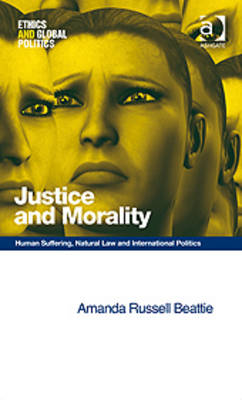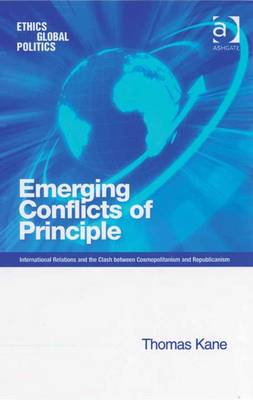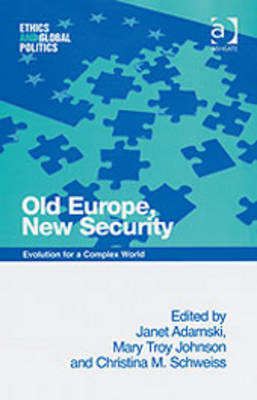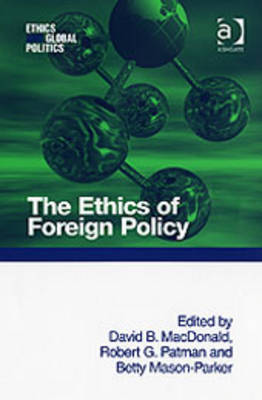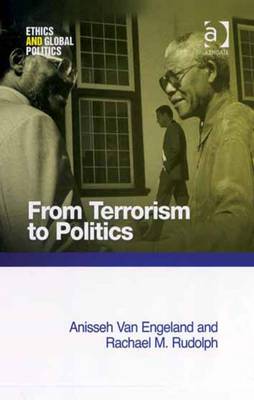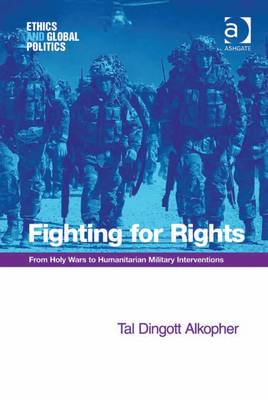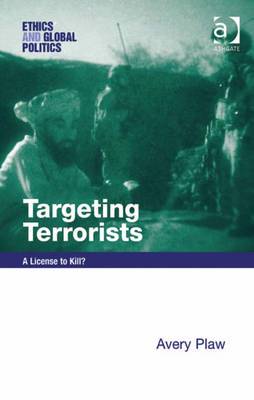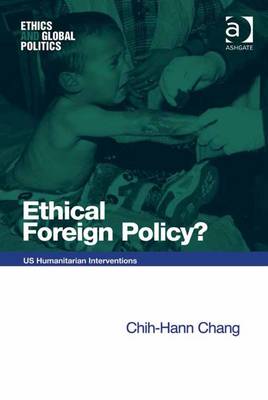Ethics and Global Politics
8 total works
Bridging the contending theories of natural law and international relations, this book proposes a 'relational ontology' as the basis for rethinking our approach to international politics. Amanda Beattie challenges both the conventional interpretation of natural law as necessarily and intractably theological, and the dominant conception of international relations as structurally distinct from the ends of human good, in order to recover the centrality of other-directed agency to the promotion of human development. Offering an important contribution to the study of international political thought, the book contains a number of challenging and controversial ideas which should provoke constructive debate within international relations theory, political theory, and philosophical ethics.
Debates over the ethics of war, economic redistribution, resource consumption and the rights and responsibilities associated with membership of a political community are just some of the major conflicts of principle identified by Thomas Kane which characterize world politics today. According to the author, debates such as these are being drawn towards increasingly polarized positions represented by strongly universalist and particularist moral and political ideologies, such as cosmopolitanism and republicanism. Kane analyzes each of these areas, identifying that the potential for ideologically-driven conflict will constitute the greatest challenge facing scholars and policy makers in the twenty-first century.
Old Europe, New Security
Many of the US criticisms of Western European reluctance to engage in the 2004 war in Iraq stem from a perception that these governments are 'weak on defence' or unwilling to 'pull their own weight' in the international system. Secretary Rumsfeld pejoratively designated traditional Atlantic Alliance allies as 'Old Europe', to distinguish them from the freshly minted, cooperative states of 'New Europe'. In doing so, Rumsfeld accused 'Old Europe' of yet again relying on the United States to solve shared security problems.
This volume critically evaluates the validity of this view of Western European choices and policies. Rather than a primary reliance on military force as first line defence, it proposes that Western European governments are expanding the set of tools they have to apply to the post-Cold War array of security and defence problems. The volume examines the emergent European security approach from multiple perspectives, in multiple institutions and identities, and in different geographic contexts.
The Ethics of Foreign Policy
This ground-breaking volume considers the ethical aspects of foreign policy change through five interrelated dimensions: conceptual, security, economic, normative and diplomatic. Defining ethics and what an ethical foreign policy should be is highly contested. The book includes many very different viewpoints to reflect the strong divergence of opinion on such issues as humanitarian intervention, free trade, the doctrine of preemption, political corruption and human rights. The thematic approach provides this volume with a clear organizational structure, giving readers a balanced overview of a number of important conceptual and practical issues central to the ethical analysis of states' conduct and foreign policy making. An impressive group of international scholars and practitioners, including a New Zealand Foreign Minister, a US National Security Advisor, and an ICJ Justice, makes this volume ideally suited to courses on international relations, security studies, ethics and human rights, philosophy, media studies and international law.
How do terrorists become politicians? This book embraces a series of comparative case studies in order to examine important issues regarding the relationship between terrorism and political processes. It identifies the characteristics necessary for the transition from a 'terrorist' organization to a political party and situates this within broader debates about substantive ethical concerns motivating the distinction between legitimate politics and illegitimate violence.
The volume offers a presentation of how some terrorist groups see the world in which they live. It also provides an understanding of how established democracies such as the US react to the phenomenon of the terrorist-politician transition. This is a useful resource for students and scholars of international relations, political ethics and comparative politics.
In the light of NATO's humanitarian war in Kosovo is it possible to understand or explain wars as an outcome of perceptions of rights? How did rights, be they divine rights in the Middle Ages, territorial rights in the eighteenth century, or human rights today, become something that people are willing to fight and die for? To answer these questions, this book explores the linkage between concepts of rights and the practice of war in the international arena.
Alkopher describes how normative structures of rights have shaped different practices of war from medieval to modern times, through the lens of social constructivism. From the eleventh to the thirteenth century, concepts of divine rights and institutionalized practices of the Crusades to the Holy Land fostered the prevailing ideas of international rights and war. In the eighteenth century, the institutionalization of states' rights and territorial wars shaped international conflict. This view held until the late twentieth century when the institutionalization of human rights coupled with the emerging practice of humanitarian war, particularly NATO's war in Kosovo, engendered new norms of international conduct. The author concludes that rights have the power to constitute an international order that will be either cooperative or conflictual and the choice of outcome is very much in our hands.
This book will be essential reading for international relations and political science scholars and students but also philosophers, legal and sociological historians and international lawyers.
Targeting Terrorists: A License to Kill? examines the political history and ethics of targeted killing. Avery Plaw's analysis addresses the questions of moral, political and legal justification in the context of the current 'war on terror' and of legitimate/illegitimate forms of counter-terrorism more generally. Given the increasing number of terrorist targetings conducted around the world today and the virtual absence of a sustained public and scholarly debate over the practice, this study makes a crucial contribution to the examination of an increasingly important and troubling subject.
Incorporating insights and arguments from a range of disciplines and approaches, and offering an excellent balance between theory and case studies, this book is highly relevant for courses on ethics, politics, international relations and international law.
While the 1990s gave rise to a wealth of literature on the notion of ethical foreign policy, it has tended to simply focus on a version of realism, which overlooks the role of ethics in international affairs, lacking an empirical analysis of foreign policy decision-making, with relation to ethical values in the post-Cold War period. This book addresses this gap in the literature by exploring ethical realism as a theoretical framework and, in particular, by looking at US humanitarian interventions at an empirical level to analyse ethical foreign policy in practice. Furthermore, it moves beyond the debate on legality or legitimacy of humanitarian interventions and focuses on whether a state would intervene for humanitarian purposes.
Chang provides a deeper understanding of ethical foreign policy in theory and practice by applying ethical realism as a theoretical framework to evaluate the Clinton administration's foreign policy on humanitarian intervention. She addresses concepts of moral leadership and pragmatic foreign policy in the field of international relations in general and foreign policy analysis in particular.
